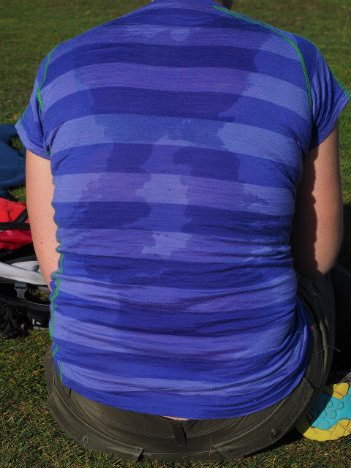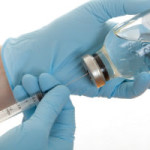Can Your Sweat Really Tell Your Health?
If you are working out at the gym, sweating is a normal and even healthy occurrence. If it happens while you are at work, school or doing your grocery shopping, you may stop and question your body. Why am I sweating? How much sweat is too much? What if I’m not sweating at all?
What Is Normal Sweat?
Normal is such a vague concept. Each of us is unique and present our own set of circumstances and environment. Some people perspire more than others due to having more sweat glands. You know your body best. Everyone’s baseline is different, so to determine what level of sweat is “healthy”, you will want to look at a list of variables.
- Are you nervous, or feeling anxious?
- Have you eaten any spicy foods?
- Are you in a warm/hot environment?
- Are you overweight?
- Are you engaged in strenuous physical activity?
Answering these questions will help to determine if you are sweating a “normal” amount. Sweating during any kind of strenuous physical activity is normal, even if it seems excessive.
What Is Perspiration?
Believe it or not, perspiration is a naturally pure substance. It is 99 percent water and 1 percent other substances such as Vitamin C and other acids. There are two types of sweat produced from two types of glands:
Common Sweat (Eccrine): This type of perspiration is produced, for example, when walking through a theme park on a humid summer day. It soaks your clothes and cools your skin as it dries. It is almost purely made up of water.
Stress Sweat (Apocrine): This type of perspiration is produced when you are extremely anxious. It is a thick, fat-containing perspiration that is most commonly produced at the root of the hair in the groin, armpits, and scalp areas.
Does Perspiration Smell?
You may be surprised to learn the answer to this question is actually, no. Perspiration is naturally produced by the body and is odorless. However, when moisture mixes with the bacteria on your skin, the bacteria start to break down the particles of your sweat and emit their own type of digestive gas. Yes, you read that correctly. When you are smelling someone’s body odor, you are, in essence, smelling their bacteria farts. Who says science can’t be fun? However, if you are experiencing perspiration that is excessively smelly (like rotten eggs, garbage or even sickeningly sweet) there may be an underlying health issue and you will need to consult your doctor as soon as possible.
Be On The Lookout For Extremes
Hyperhidrosis
Approximately 3 percent of the world’s population is affected by excessive sweating. Hyperhidrosis can be hard to detect and affect your daily routines. Many people suffering from this have over active sweat glands and produce roughly 4 times the amount of sweat as other people.
They often feel moisture on their hands and feet in addition to the “regular” sweat producing areas such as the armpits and groin. If you feel that you are sweating while remaining completely still in a well-ventilated room, day and night, you will want to consult with your doctor immediately to confirm the diagnosis and proceed with a treatment plan. Treatment often consists of medicine, Botox injections and sometimes even surgery.
Anhidrosis
If you suffer from anhidrosis, your sweat glands do not produce enough sweat. You may go to the gym and work out only to feel dizzy, lightheaded, nauseous or even pass out. You may even break into a rash and/or have cramps in your muscles. Not producing enough sweat is very dangerous. If your body cannot maintain it’s temperature correctly, you can have very serious complications such as overheating. You need to speak to a doctor promptly.
Sweating can be embarrassing to talk about. But if you feel you are sweating too much or too little, chances are you need to talk to your doctor. You know your body. Be your own advocate. There is nothing to be embarrassed or ashamed of. We are all in this together.







